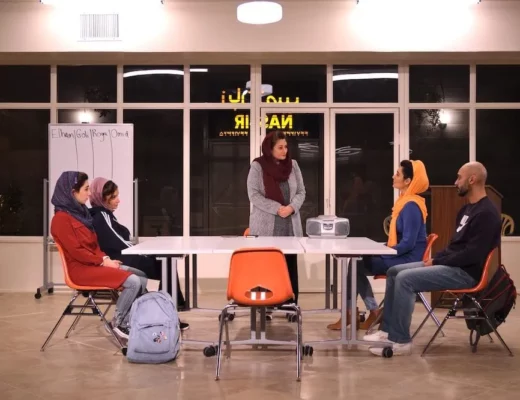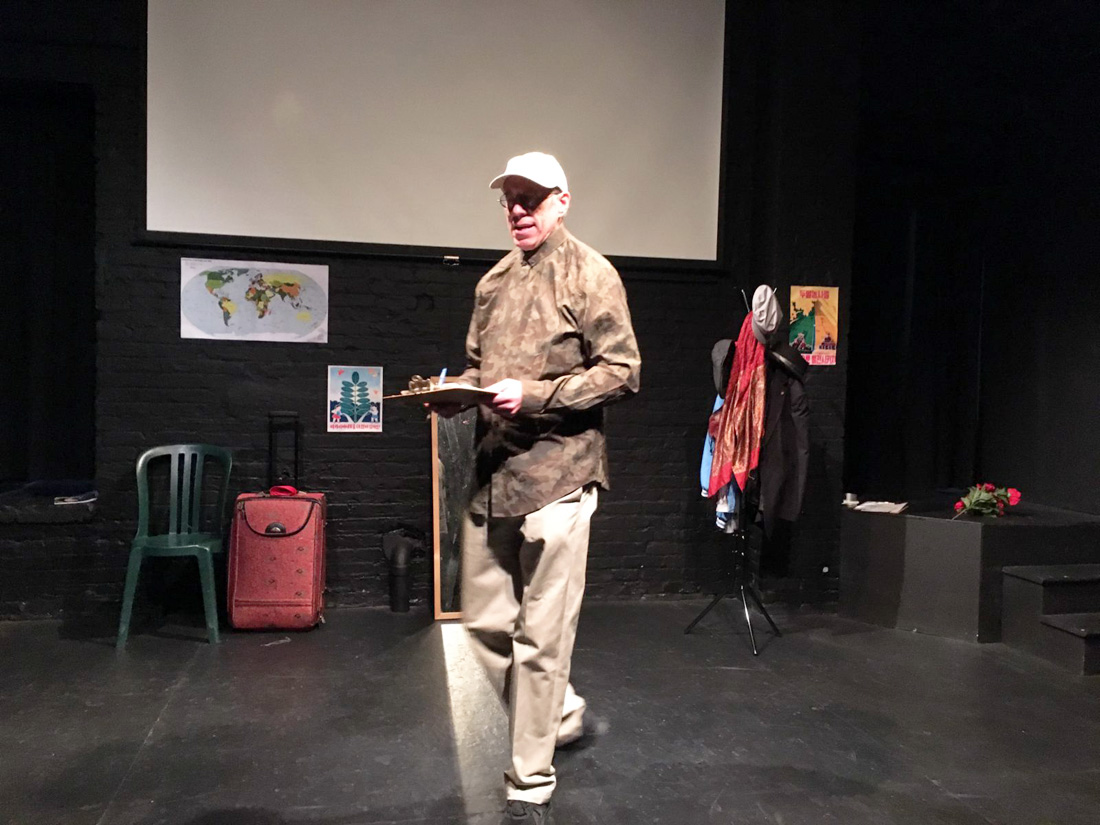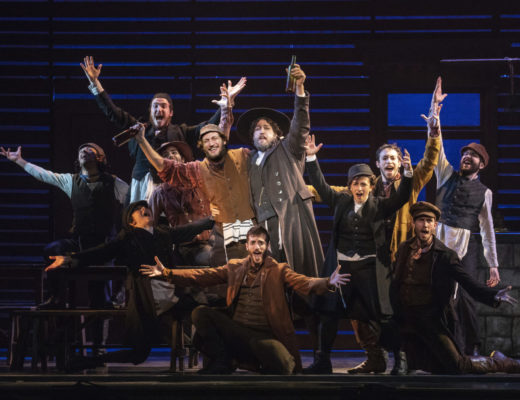By Daniella Ignacio
This article was first published April 13, 2020 in DC Theatre Scene here.
Although performances and the National Players tour have been canceled at Olney Theater Center, the artistic staff, education staff and the National Players have found a new way to stay engaged with the community — through eight hours of Zoom classes on Mondays through Fridays from 9 a.m. to 5 p.m. All classes are free of charge, ranging from master classes and courses, to business advice, seminar-style discussions and storytelling. The classes began as open to the public, but, as of April 8, require registration through a Google Form on the Olney website. As of today, Olney Theatre offers 22 classes.
“The reason why we wanted to start doing classes online was we wanted to stay connected to our community, from the very young to adults who are curious about how we do what we do,” said senior associate artistic director Jason King Jones, who teaches Directing Shakespeare For A New Era, Resume and Audition Tips, You Are Your Own Business and Storytime. “We’re offering them for free because we want to encourage as much participation as possible. Besides with so many people suddenly out of a job, the last thing we’d want to do is try to take money from people struggling right now. Of course, if people have a great experience and want to donate to us, they are certainly welcome to do so.”
With each instructor using Olney’s single Zoom account all day, they’ve developed a system of logging off at 55 minutes after the hour to make time for the other person to log on. Each instructor serves as the host of each Zoom meeting, and the new registration model gives more agency to the host, as Olney has encountered difficulties with intruders, a problem that other educational environments have faced. Jones himself has had to kick people out of Storytime classes that were being disruptive. In New York City, security issues led to Zoom being banned in public schools.
“Our initial plan was to kind of have an open door policy and allow people in but it only took about five days for some nefarious actors to decide it would be more fun to troll our Storytime site and our classes with trollish behavior,” he said. “So we deleted all of those open Zoom meetings and then created a registration system through Olney so people register with us.”
Olney asks parents to register their kids, and adults to register themselves. The company is able to monitor who is registering on an individual level, to ensure that everyone is being forthright with their identity, and already has been able to red flag an individual who they identified as not being entirely forthright in trying to register for Storytime. Once registered, participants receive a new link and password to the Zoom meetings.
“The downside of that is that access is more limited, so our participation numbers may skew a little bit smaller initially, but our hope is that the security measures we’ve put in place will then encourage parents to see that this is a safe opportunity for their kids, a safe and secure learning environment,” he said. “We re-launched everything and everything is already going so much better.”
A lot of the Zoom settings now allow for more host controls that are not provided in the default settings: participants can only chat with the hosts, not each other and only the host is given control over participants’ mics and cameras, annotating white board and generally the features that Zoom has. If the host chooses to then allow for participation, the host is in control of that.
“In order for us to effectively teach our classes, we had to make some more stringent restrictions on how people get access to class and what the host can allow in order to have a controlled learning environment,” he said. “You know, if you’re in a classroom, you have classroom management techniques that just aren’t available using a video conference software, other than muting people’s microphones or muting their cameras or just removing them from class.”
For Jones, Storytime is a family affair, and the class provides a function that is otherwise inaccessible right now.
“Storytime seems like an obvious one in some ways, because libraries are closed, preschools are closed, some parents may not have a lot of kids’ books lying around,” he said. “I happen to have quite a few having gone through two kids and collected a lot of stories, and knowing that I like to read stories to kids, why don’t I offer that as a thing for parents to be able to give that opportunity to their kids?”
His 11-year-old daughter Gwen and 5-year-old son Elliot often show up as “guest artists” who participate in the readings. Elliot models good behavior for being a good listener; Gwen sometimes reads the books. Every time, Jones welcomes everyone at the top of the hour and goes right into it, reading “basically what’s on the shelf” in his house: Eric Carle, Maurice Sendak, Marissa Meyer, Dr. Seuss or various books on animals and nature they have.
“I see my job as basically a person they could log on to and see some stories being read,” he said.
Using Zoom for Storytime has had its ups and downs beyond disruption, Jones said. He has to be more mindful of his posture while reading books to a laptop camera and change up the location in his house based on what activities his kids and wife are doing at the time.
“I take some time with each page, I look at their faces on the screen, I try to mute them because sometimes there’ll be other noise around and I watch their reactions,” Jones said. “If they’re reacting with the books, I make sure they have some time with it. So I’m following their faces on the screen and that’s the best that we can do right now.”
Jones runs a plethora of other classes for Olney that are online, including Directing Shakespeare for a New Era, which examines how directors can view Shakespeare’s works in the current climate.
“I’ve been directing a Shakespeare play for National Players every year for eight or nine years, so it’s very much on my mind of ‘how do we direct shows now in this world?’” he said. “It’s about understanding Shakespeare’s relationship to gender, to violence, to the technologically advanced society in which we live; it’s understanding how these plays speak to us differently. Rather than requiring artists to adhere to some kind of outdated mode of telling the story, it’s giving people permission to meet the plays where they are in this time and day.”
In just the first week of running the classes, the company has already amassed a far reach. The demographics collected from registration show that people are attending these classes from within D.C., Maryland, South Dakota, Pennsylvania, Texas, South Carolina and California.
“There certainly are other theatre companies that are offering some classes or some coaching, but I would say that at least in the D.C. area we are unique in the volume of classes we are offering,” Jones said.





No Comments